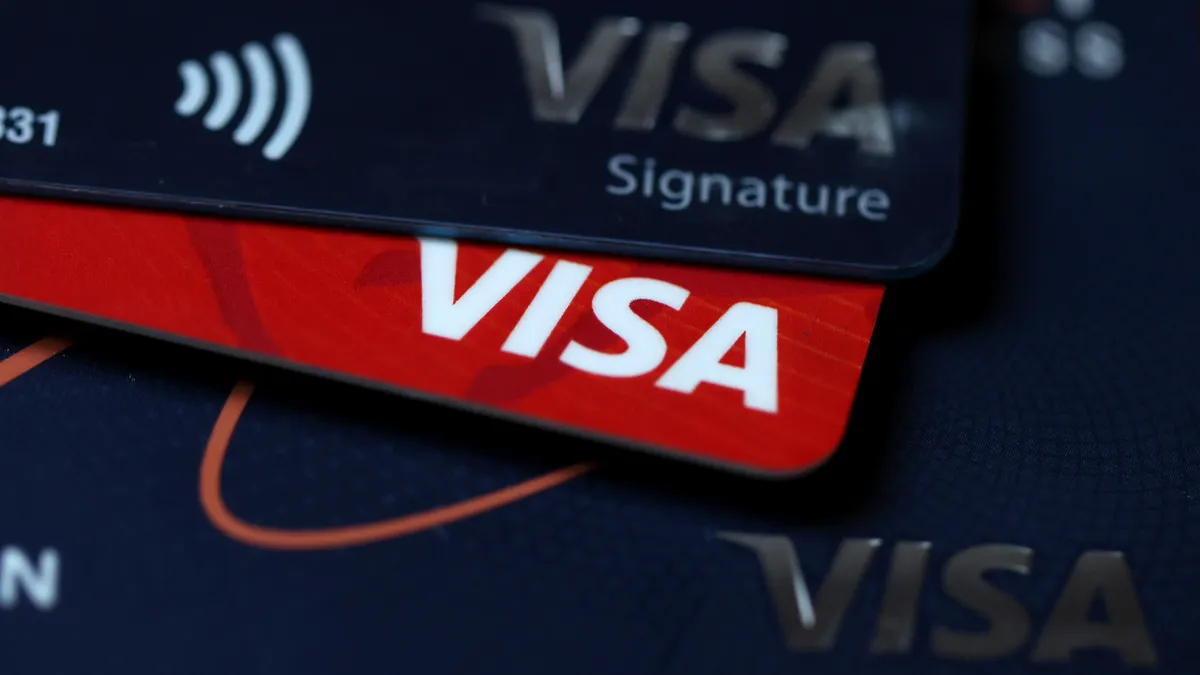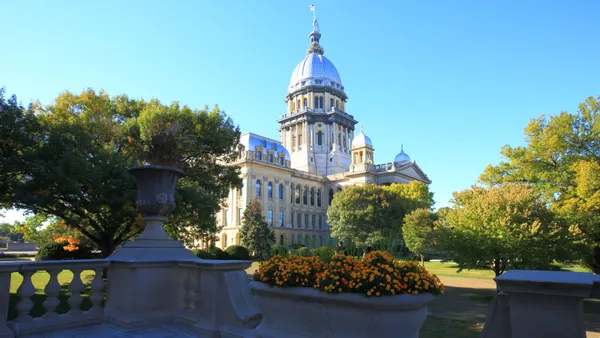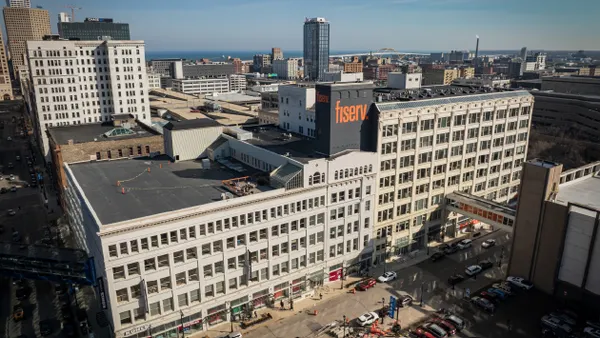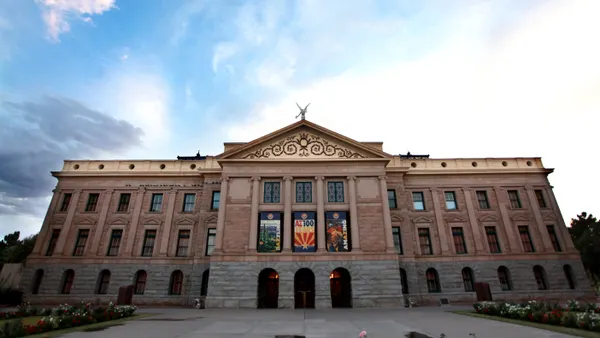The proposed legal settlement that Visa and Mastercard reached with merchants Monday likely wouldn’t take effect until next October, at the earliest.
That’s according to Visa’s chief financial officer, Chris Suh, who spoke about the agreement Wednesday during an investor conference hosted by Stifel’s Keefe Bruyette & Woods financial services firm.
The settlement aims to compensate merchants for their claims that Visa, Mastercard and bank card issuers imposed excessive fees when consumers used credit cards.
“We do expect the legal process to continue through the end of fiscal 2026, which means that any implementation would occur in fiscal 2027,” Suh said.
Visa’s fiscal year runs through September so fiscal 2025 just ended two months ago.
Mastercard made a similar disclosure on the timing of the approval Monday in a regulatory filing: “All rules practice changes will occur after approval of the Agreement, which is expected to occur most likely in late 2026 or early 2027.”
Aside from discussing the agreement’s timing, the Visa CFO touted the pact’s benefits for merchants.
“We're very pleased to have reached this proposed settlement, one that provides meaningful relief to merchants in the U.S., additional flexibility and options to control how they accept payments,” Suh said during the conversation. “We’re very focused on the approval process.”
Specifically, Suh plugged merchants’ options under the agreement to accept some credit cards, and to reject others. That provision does away with a former ‘honor all cards’ rule imposed by the card networks.
San Francisco-based Visa is the largest U.S. card network and Purchase, New York-based Mastercard is no. 2.
In addition to lower interchange fees for merchants, the pact provides “interchange rate certainty,” given caps on interchange rates for five years, Suh said.
While lawyers that represent merchants in the case have accepted the agreement, the federal court overseeing the 20-year-old litigation must still decide whether to approve the pact. Last year, a federal judge jettisoned a prior agreement, saying it didn’t treat merchants equitably.
U.S. District Court Judge Brian Cogan, who presides in the Eastern District of New York, is now overseeing the case.
Suh noted that the mediator that worked with the feuding litigants has offered a document supporting the latest agreement.
Still, some merchant trade groups are already gunning for the agreement. For instance, the National Association of Convenience Stores called the latest legal pact “business as usual, including by letting Visa and Mastercard increase their own fees without any restraints,” in a Monday press release.
KBW analyst Sanjay Sakhrani, who interviewed Suh during the event, prodded the CFO to discuss how merchants steering consumers with incentives and surcharges might affect Visa’s competitive position in the payments market. Merchants sometimes offer consumers better pricing if they don’t use a credit card, or impose surcharges if they do.
The context for that question revolves around young fintechs increasingly challenging the traditional card networks over the past decade, including those offering buy now, pay later financing. Tech titans Apple and Google also offer digital payment tools that sometimes shut out the networks.
“It’s early, and we'll have to see how it all plays out,” Suh said. “But we do believe that [merchants] understand the benefits of accepting Visa and for all the reasons that I talked about, from safety and security to the actual customer experience, we believe that our value proposition is strong.”













